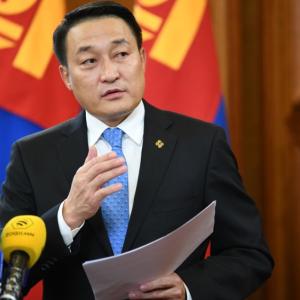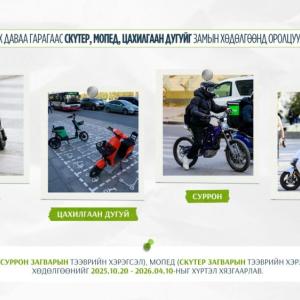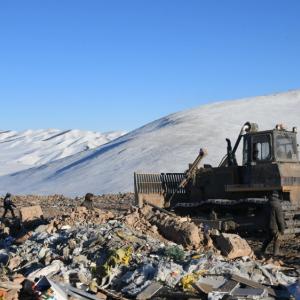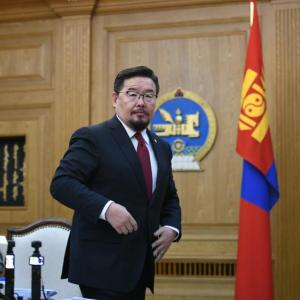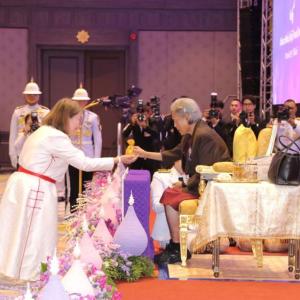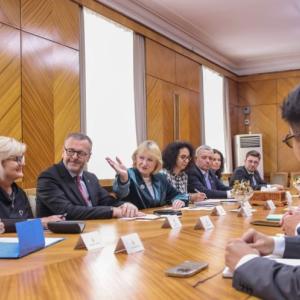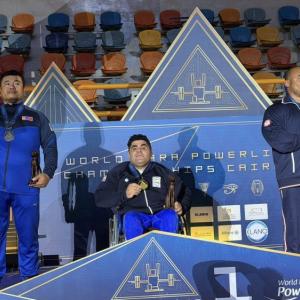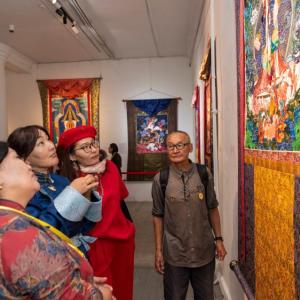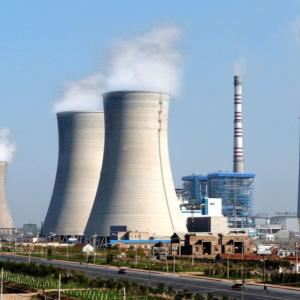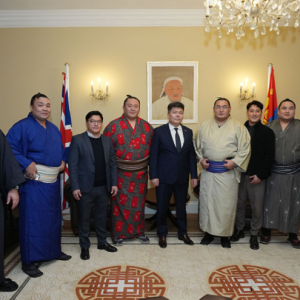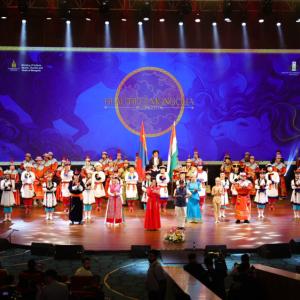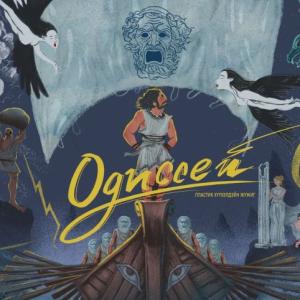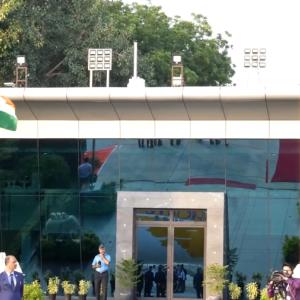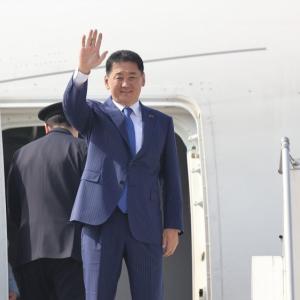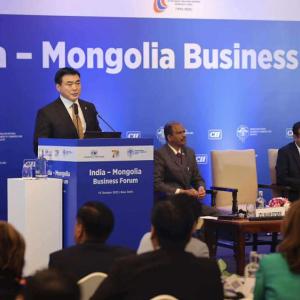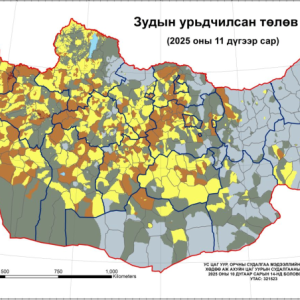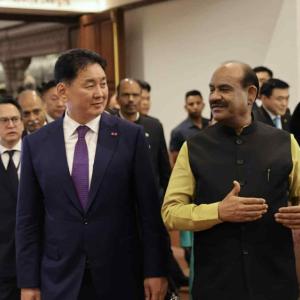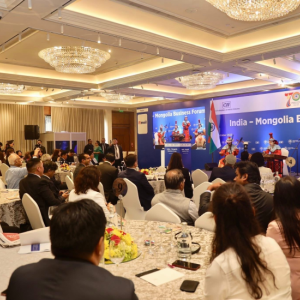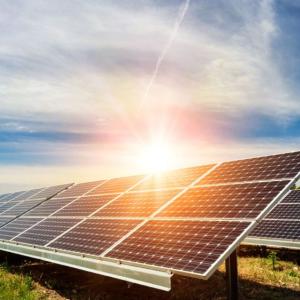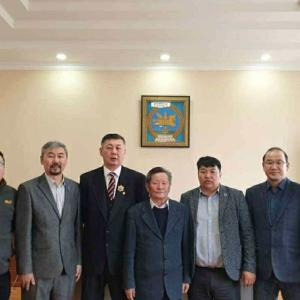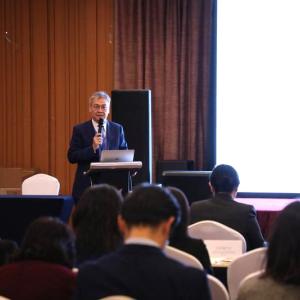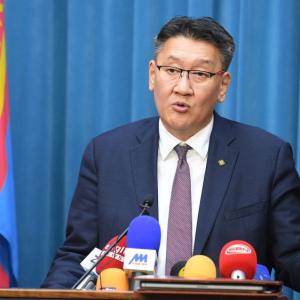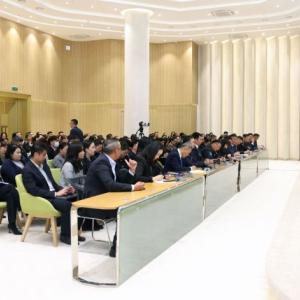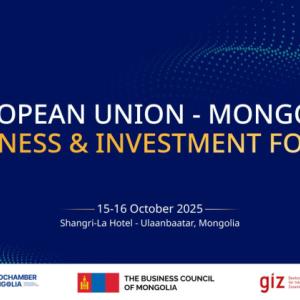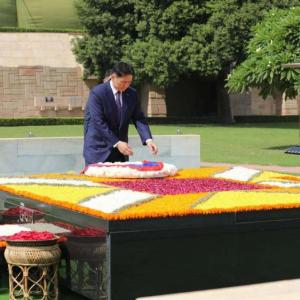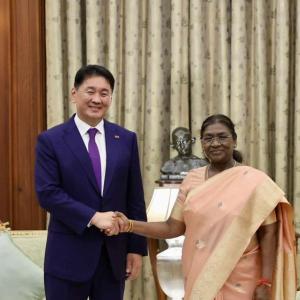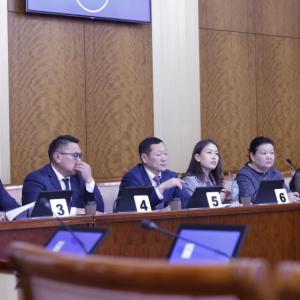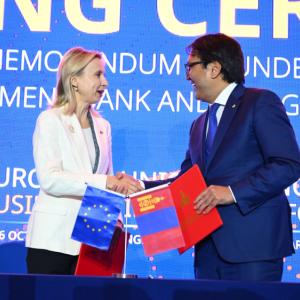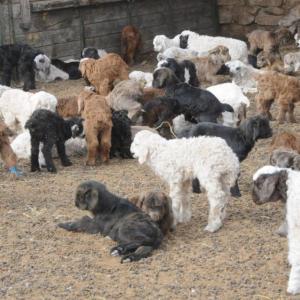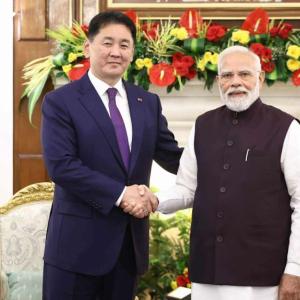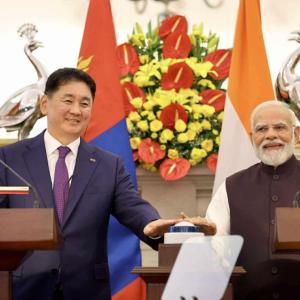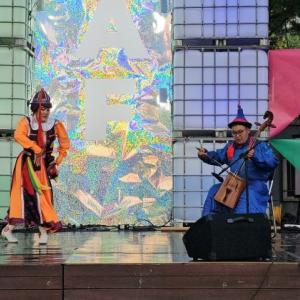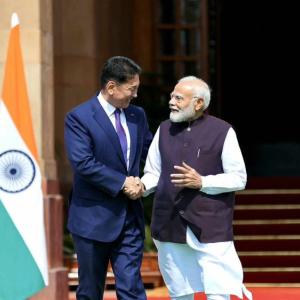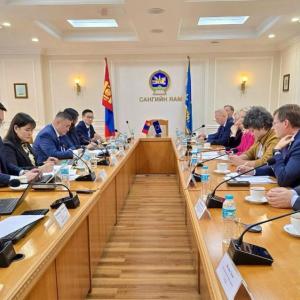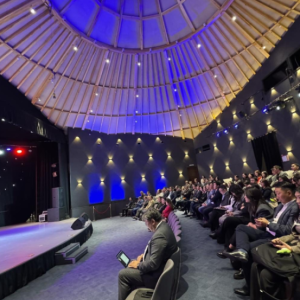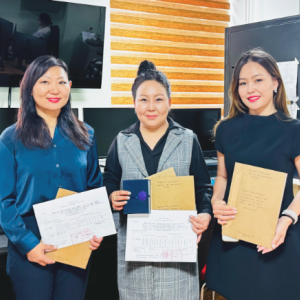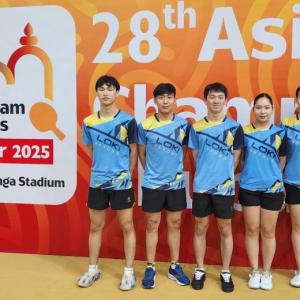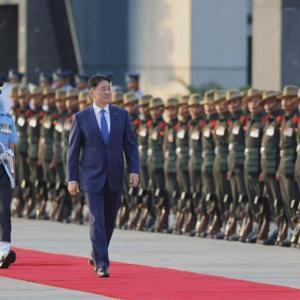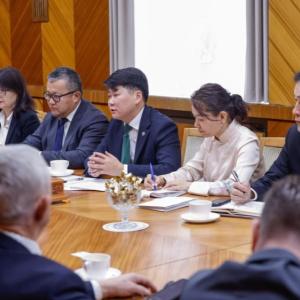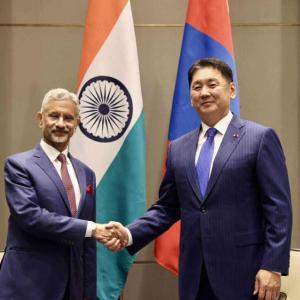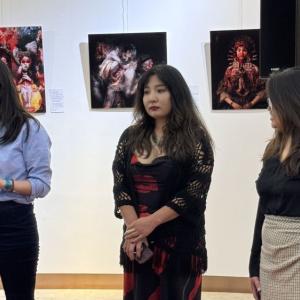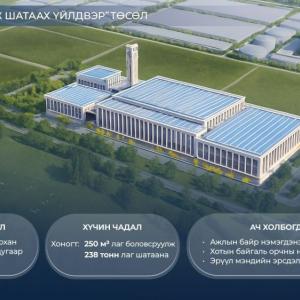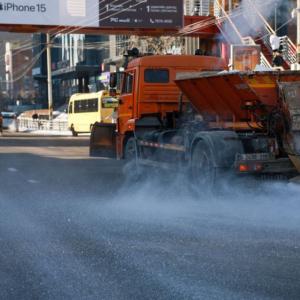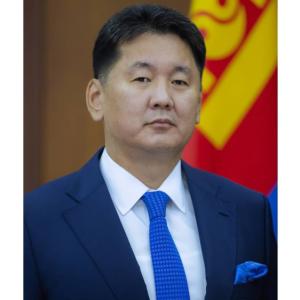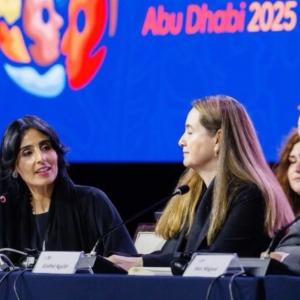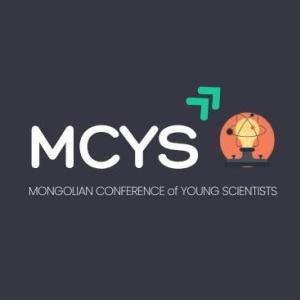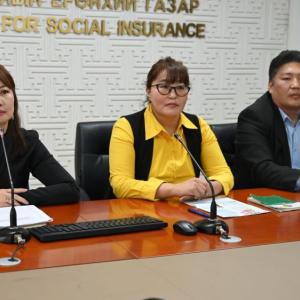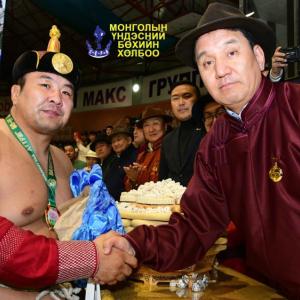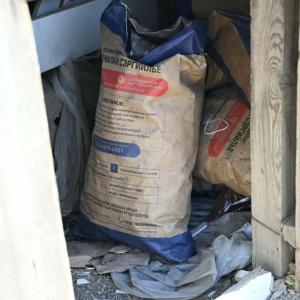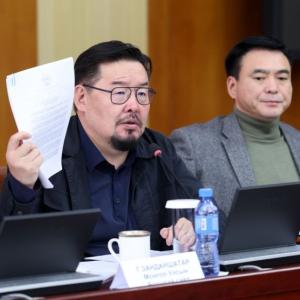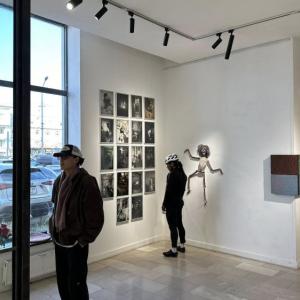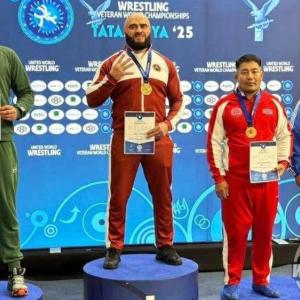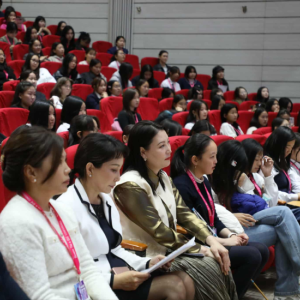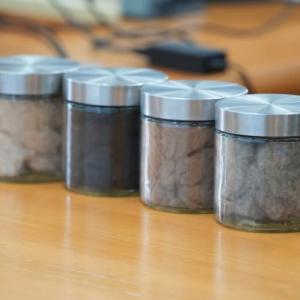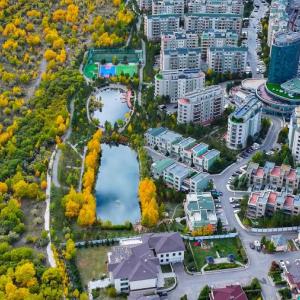Prime Minister L.Oyun-Erdene presents four key objectives of his Cabinet
The Mongol Messenger
Ulaanbaatar /MONTSAME/. Regarding the appointments of members of
the new Cabinet, Prime Minister L. Oyun-Erdene delivered a speech at the
plenary session of the Parliament and introduced four goals of his Cabinet.
At the outset of his speech, Mr. Oyun-Erdene highlighted,
“Thanks to the decisive measures of 31st Prime Minister U. Khurelsukh, the air
pollution of Ulaanbaatar decreased by 50 percent, and the Government reclaimed
lost mineral deposits. Moreover, he started the fight for justice and set a new
ethical standard in Mongolian politics.”
“Maintaining the continuity of the Government's policy, we will
complete major projects that are inseparably connected to the country's
destiny, such as the oil refinery, railway projects, natural gas pipelines, the
Tavan Tolgoi power plant, and the Erdeneburen hydropower plant.
Our Government is fully aware that it is facing a lot of
challenges, including the pandemic, pandemic-related global economic crisis,
the problems for businesses, entities and citizens, social unrest, and the
politicization around the upcoming presidential election. Therefore, let me
briefly introduce four goals of our Cabinet, which will contribute to our
country’s future,” said the PM.
Objective 1. A plan to overcome the pandemic within a short time
Mongolia had prevented the spread of the COVID-19 among the
community for ten months, but at last, we could not avoid this suffering. Our
Government will develop a comprehensive plan to overcome the COVID-19 pandemic
and take immediate actions.
Vaccinating the population is our priority. The Government will
do its utmost to involve staff working in the frontline, risky groups, and the
public in the WHO-approved vaccines in phases within the first 100 days of the
Government.
Prompt vaccination will help to overcome the economic and social
difficulties caused by the pandemic in a short period. The Government will
include in its action plan a comprehensive package of measures as stimulation
for the companies, employers, and small and medium-sized businesses that were
most affected by the pandemic. We will intensify the repatriation of our
citizens abroad based on the recommendation of professional organizations.
Objective 2. A plan to recover the economy
Despite the pandemic outbreak that has not occurred in 100
years, the global economy will likely have a rapid recovery after humankind overcomes
the epidemic. Therefore, we must not retreat from our goals of reviving and
growing our economy by being binded by our current mindset caused by the
pandemic. We have to start preparing for the post-pandemic economy from now on.
Even the issues of citizens’ income and employment cannot be fully resolved
without economic growth.
“Supposing Mongolia as a family, we annually overspend an
average of USD2 billion than we earn, and 93 percent of our family’s earnings
come from non-renewable resources such as coal, gold, copper and iron ore.
To put it bluntly, if a scientific and technological solution is
found to replace coal, we will not be able to pay salaries and pensions.
Therefore, we must not waste any time. We would have no choice but to make bitter,
difficult decisions in the economy. The economic structure, which is overly
dependent on mining, needs to be changed when the mining sector is strong.
“Therefore, the main goal is to accelerate the development of
science, technology and innovation. …The scientific academies and innovation
institutes will be coordinated and organized into a unified cluster to
commercialize scientific discoveries. The Government will support and partner
with national companies that have started successfully competing in the global
market for artificial intelligence, fintech and cloud technology during the
Fourth Industrial Revolution.”
The National Sovereign Wealth Fund will be established to make
mining revenues more profitable and distribute natural resources fairly and equitably.
The Fund will have three directions of activity: accumulation, stabilization,
and development. Funding for the sovereign wealth fund will come from mining
royalty fees, and profits of the state-owned companies, and will be spent on
promoting economic priorities and improving livelihoods.”
“The direct profit of the strategic mining deposits will be
improved. We will work closely with the Parliament to significantly improve the
Oyu Tolgoi agreements and create the conditions for Mongolia to be lucrative
rather than be indebted in return for the use of our resources.
As the head of Government, I will prioritize the following
sectors of the economy based on the 'Vision-2050' policy. It includes mining,
processing industry, food and agriculture, energy, tourism, SMEs, transport and
logistics, creative industry and information technology.”
The Prime Minister also explained in a few words why these
sectors are pointed out.
“First of all, we need to make our natural resources become
value-added. It is necessary to build plants capable of washing coal, smelting
copper, refining oil, and processing iron ore. For example, a ton of coking
coal at the Erdenes Tavan Tolgoi mine costs USD 63, but its value rises to USD
200 after being transported and washed at Gantsmod port.
Mongolia imports goods worth USD 6.1 billion annually, of which
USD 1 billion is spent on oil products. If the oil refinery is commissioned, it
will be possible to supply 70 percent and further 100 percent domestically.
To become an industrialized country, we need to solve our
infrastructure problems. The construction of the Tavan Tolgoi–Gashuunsukhait
and Tavan Tolgoi–Zuunbayan railways will be completed soon. It will save USD
600-900 million a year in transportation costs and increase the total exports
by about 30 percent.
Road projects will be sorted by priority. In the first turn,
projects connecting border ports and tourist routes will be implemented. It is
vital for our landlocked country to develop the transportation and logistics
sector as a whole.
Today, we import 25 percent of our energy that takes an average
of USD 140 million a year. To reduce this outflow, it is necessary to complete
Tavan Tolgoi and Erdeneburen hydropower projects urgently and start the
construction work of the Power Plant V.
Every year, the country imports food products worth USD 605
million. Therefore, there is an urgent need to create an entirely new system of
import-substituting, export-oriented agriculture and light industry. Also, it
intends to build plants to process animal-related raw materials and basic
transportation centers in stages.
Throughout the world, tourism would undoubtedly be the sector
that will revive the fastest after the pandemic. We need to resolve some issues
without delays, such as eliminating the irresponsibility, red tape, and
obstacles foreign tourists face while visiting Mongolia, establishing an
e-Embassy, issuing e-visas, and liberalizing air transportation.”
The PM also said that a creative economy based on the country’s
history and rich cultural heritage would be developed. In this context, the
management of the Ministry of Culture will be elevated to a new level, bringing
culture, arts and cinematography to the global level and making it economically
efficient.
Councils of economy, entrepreneurs and foreign investment
promotion will be formed under the Prime Minister. Moreover, a Ministry of
Economy and Development will be established, said the PM.
Objective 3. The new system to support the middle class
"The last 30 years gave us many values, such as human
rights, freedom, press freedom, a multiparty parliamentary system, and the
market economy. Despite all this, the gap between the rich and the poor
increasingly grew, resulting in income inequality, the flourishing of the
underground economy, and the loss of social justice. It is the harsh truth that
28.4 percent of the total population or about 1 in 3 people currently lead a
below-average life. The inclusive growth of the economy should only be measured
by positive changes in the quality of life. Yet, the government has not been
able to bring such changes to the citizens’ quality of life.
The moving force of society– citizens with average income are
currently in quite a bit of a predicament. In order to transition into a
completely new system that supports average income citizens and create a
society largely consisting of the wealthy middle class, the most important
issue is apartments and urban development. In the coming three years, the
Government will carry out a project on the construction of ‘Youth I, II, III’
complex apartments with a unified blueprint, resolving the new financing model
for income-based apartments by transitioning into the system of a unified
savings fund."
"The second important factor in creating a society mainly consisting
of the wealthy middle class is quality education. Although the intellectual
capacity of Mongolian children ranks 7th in the world, Mongolia ranks 49th for
the ability to utilize intellectual capacity, 59th for home-grown talent, and
111th for its know-how. Thus, special focus will be given to matters including
comprehensive education in developing into a model Mongolian citizen,
proficiency in the use of the Mongolian language and script, the quality of
training in urban and rural areas, increasing the competitiveness of
universities and colleges by merging them, and the preparation of world-class
citizens. A scholarship named after the Prime Minister will be annually
announced, and importance will be given to preparing the new generation that is
necessary for Mongolia. The cabinet will present the Package Laws on Education
Renewal before the spring session of the parliament."
"Cases for cardiovascular diseases and cancer are common in
Mongolia. Experts explain the causes for this being due to how citizens are not
diagnosed early as well as their unhealthy lifestyles. Thus, we must quickly
implement a system that annually involves all citizens in a comprehensive
health checkup. In the coming four years, the construction for the National
Organ Transplant Center, the National Cardiovascular Center, the Burn Center,
and the National Cancer Center will take place. With its completion, it becomes
possible to reduce the annual amount of costs being spent on receiving medical
treatment abroad–USD 100-120 million by 30- 40 percent. We need a new culture
that promotes a healthy, active lifestyle. We need an education system that
helps children acquire a proper understanding of the immune system and
nutrition comprehensively from a young age.
The time has come for us to correct our unhealthy mindset and
create a national culture that fights against obesity. Furthermore, several
crucial issues such as the transition from welfare to labor, increasing the
participation of women in the labor market, and creating a specialized bank and
financing system will be resolved in phases to create a national system to
support citizens in the middle class."
Objective 4. Justice and online governance
"Today, our country ranks 111th for its corruption
perception. It is apparent that the underlying factor causing this is
bureaucracy and the political system filled with corruption. Thus, the work to
create a fair justice system where no one is persecuted or wrongfully convicted
will be comprehensively supported. Those that wish to indirectly control the
state will be faced head-on.
Henceforth, we will aim to reform the corresponding legislation
to create the classical parliamentary system in Mongolia by carefully
discussing the matter with political parties. By developing laws on the
protection of whistleblowers, the financing of political parties, and civil
service ethics will be as according to international legal standards and making
amendments to the Law on Anti-Corruption, the appropriate legal environment
will be created to monitor whether state servants have expenses above their
income as well as whether they are incorrectly declaring their assets and
income."
"The work to create a “digital” nation will be actively
carried out. All forms of public services will be made available through the
E-Mongolia electronic platform. In order to have this transition conducted up
till 90 percent in 2021-2024, a specialized ministry will be established on
digital development. This will not create any more job opportunities—rather, it
is the only solution to reducing the overlap of staff at all levels, reducing
the numbers by 30-40 percent. Electronic signatures will be introduced, and the
privacy of personal information will be ensured through law. As a result,
bureaucracy will be reduced, and less time will be necessary in acquiring the
services."
"In order to create good governance, the Government will
closely cooperate with the “Fourth Estate”–the press and media. Works will be
carried out in respect to the citizens’ right to be informed, upholding the
freedom of press. Factual information will be given regarding major issues that
bring out debate and uncertainty in the public, supporting a more research-based
approach to matters and open, transparent cooperation."
"We will openly and actively cooperate with our eternal two
neighbors as well as other countries of the world in all sectors. In today’s
world of globalization, the national mindset, way of living, and unique
features will be valued, protecting our national identity and organizing pro-
motional works about Mongolia to the world on the large scale. I also believe
that an institute for national policy should be established consisting of all
previous Prime Ministers. Our cabinet will continue to implement appropriate,
applicable policies that were implemented by all previous governments."
"Citizens are the foundation of the state. It is the duty
of a democratic government to protect civil rights. By having it as a
requirement for state servants at all levels to be knowledgeable about civil
rights, special emphasis will be placed on their sense of duty to serve
citizens and protect their rights. A culture to be ethical, humane,
disciplined, and assessed based on performance as well as being held
accountable for one’s actions at each level will be introduced in civil
service."
“I perceive my appointment as the Prime Minister of Mongolia
being in the first year of the implementation of ‘Vision-2050’ long-term
development policy, which also happens to coincide with the 100th anniversary
of the People’s Revolution, and the 30th anniversary of the Democratic
Revolution, as a historically significant responsibility.
Just like how our ancestors were able to change the world’s
history in 30 years, may our country lead in the region for its social development,
economic growth, and quality of life in the coming 30 years,” noted PM Oyun-Erdene.
 Ulaanbaatar
Ulaanbaatar






